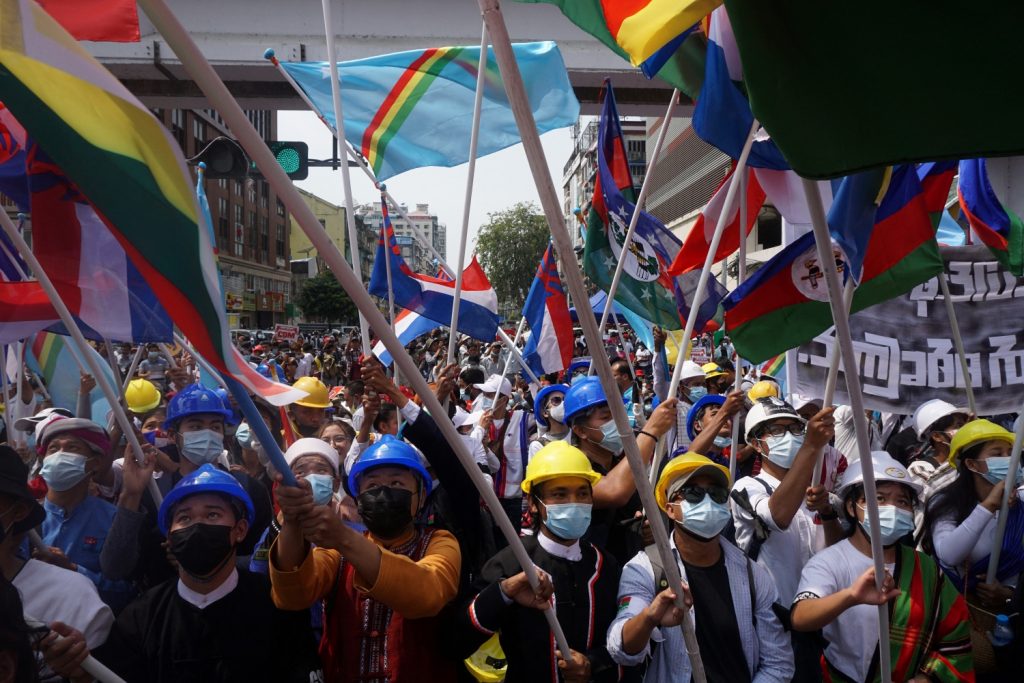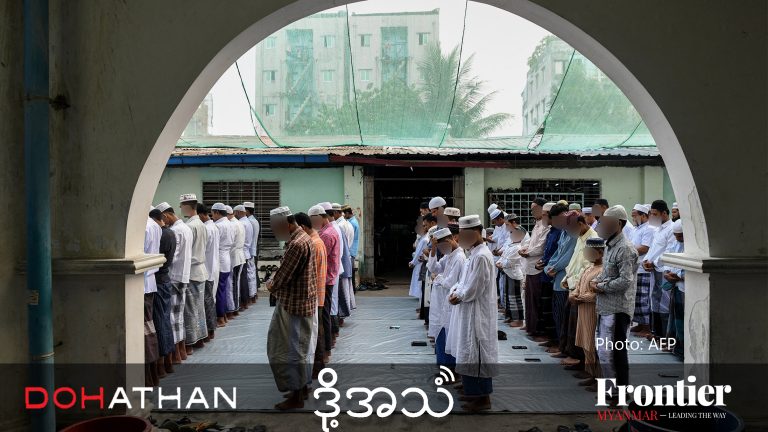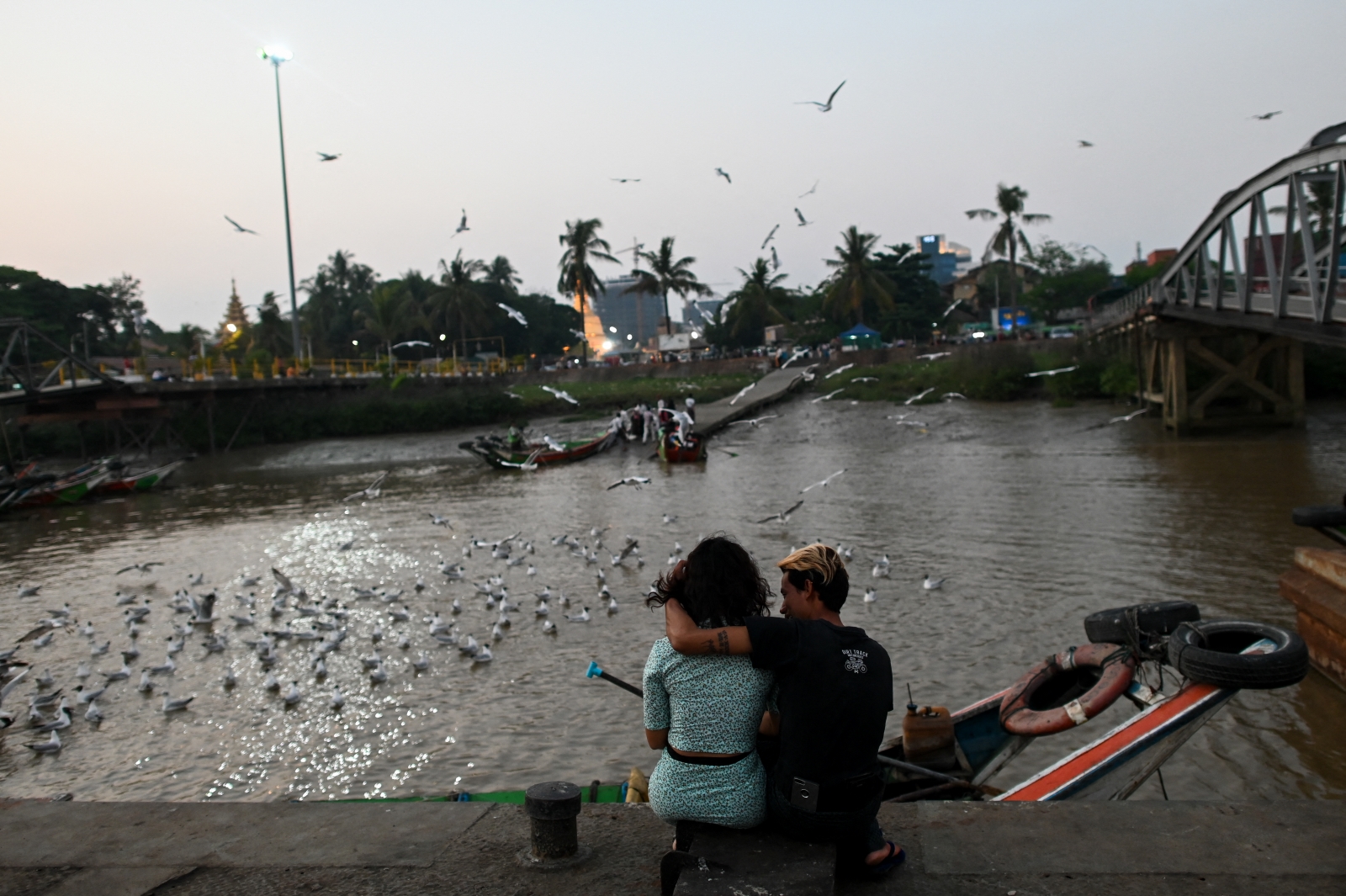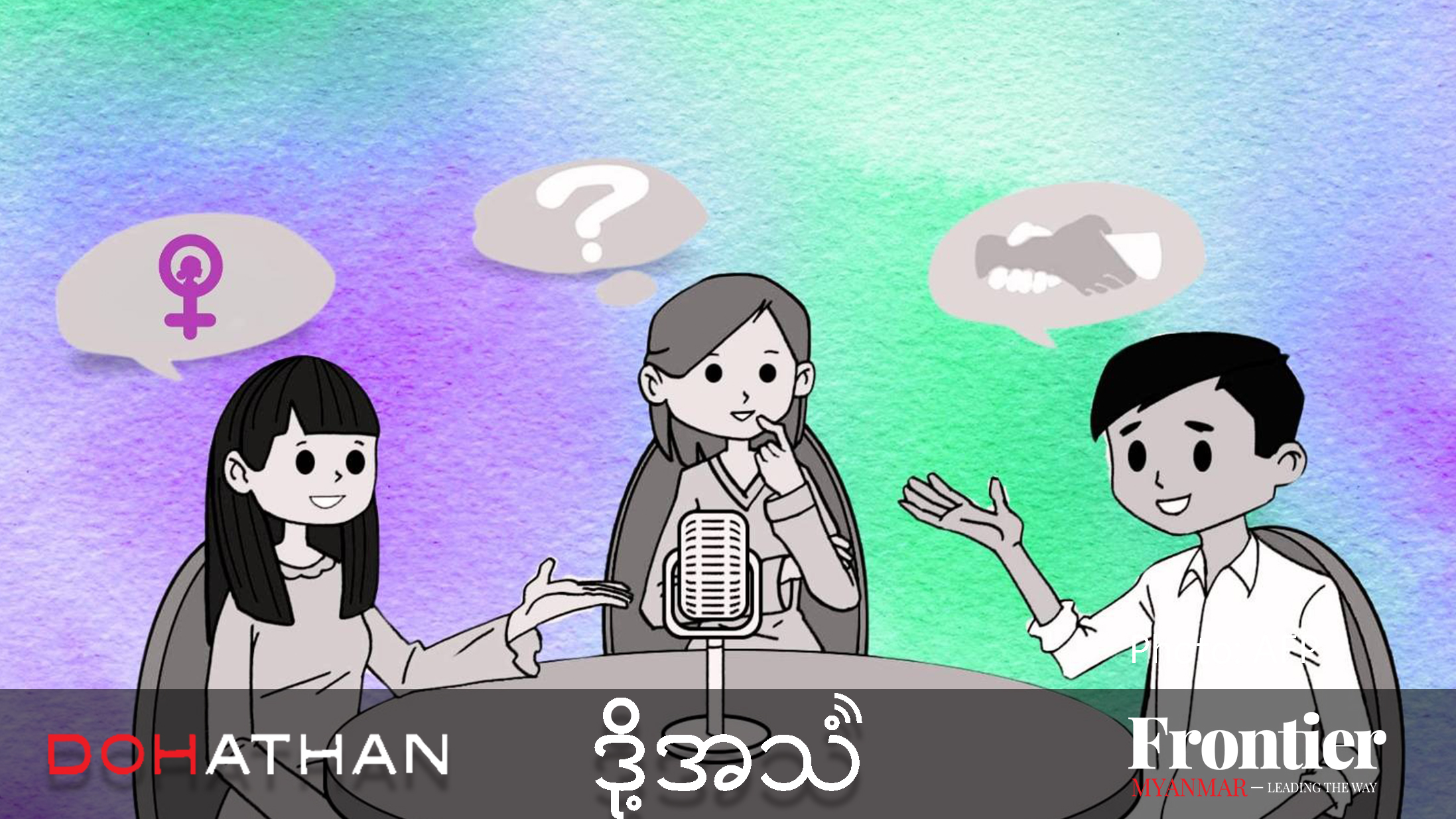To secure international support and an inclusive future, the National Unity Government must pledge to defend the rights of everyone in the country – including the Rohingya.
By LAETITIA VAN DEN ASSUM and SEAN BAIN | FRONTIER
Myanmar’s struggle for democracy is underpinned by a common aspiration for a different future – one free of military rule and the crimes, plunder and discrimination that comes with it. But it is not year clear whether this future includes all of Myanmar’s people.
Given Myanmar’s diversity, and the rights violations suffered by minority groups under decades of ethnic Bamar domination, the National Unity Government – formed last month by elected MPs and ethnic leaders to defy the junta’s claim to power – should unequivocally commit to respecting the human rights of all people in the country. For this commitment to be sincere, it must specifically include Myanmar’s most excluded group, the Rohingya, among others whom the state has denied human rights by withholding citizenship.
Individually, several NUG members have already supported this goal, but an official NUG commitment to it – which could take the form of a short cabinet statement – would establish a firm principle with which to guide future reform. It would also bolster the NUG’s credibility as an inclusive democratic force, as it rightfully seeks recognition as the legitimate government of Myanmar.
An initial statement need not spell out detailed policies or proposed legal changes – matters that require greater time and space for thoughtful and inclusive consultations. Building a united anti-coup resistance will demand greater immediate attention. But without this first step, the NUG’s commitment to human rights will be in doubt.
As a matter of law, people’s ability to enjoy human rights in Myanmar is impeded by the legal framework for citizenship, designed and largely implemented by unelected, xenophobic military men. Under the 2008 Constitution, as well as the 1982 Citizenship Law and its discriminatory application, only citizens can enjoy human rights – including the rights to equality, liberty and justice.
However, the 2014 census found that 25 percent of the country’s residents lack official documents and therefore a legal identity, effectively rendering many life-long residents stateless. Even among people with citizenship documents, many are not considered to belong to any of Myanmar’s “national races” and are therefore treated as second-class. This includes people of Indian, Chinese and Nepali descent, and those of mixed ancestry who are pejoratively called “mixed blood”. Furthermore, citizens with direct family links to the outside world are generally barred from political office, including even Daw Aung San Suu Kyi, who was excluded from the presidency because her sons are UK citizens.
Crucially, the dehumanisation of minority communities who are denied citizenship has laid the ground for crimes against humanity and possible genocide – perpetrated with impunity by the same military units now committing atrocities throughout the country against civilians who are resisting the unlawful attempted coup.
Tying the enjoyment of human rights to an exclusionary vision of citizenship is senseless and archaic as well as patently undemocratic. It must be transformed.
In many countries with diverse populations, the right to citizenship is broadly defined to include people with different ethnicities and even nationalities. States may have the right under international law to decide the criteria for citizenship, but these criteria must not result in statelessness or otherwise violate human rights. Moreover, besides certain political rights such as voting, citizenship is not legitimately a prerequisite for enjoying human rights in any country.
It may be unfeasible, or even undesirable, for Myanmar to entirely shake the concept of ethnic nationalities, given that it is tied up in decades-long struggles by marginalised groups for political representation and autonomy. Yet, the list of “national races” or “ethnic nationalities” is limited, and it will continue to exclude some groups even if others are added. To preserve the concept while still aligning Myanmar law with a visionary commitment to human rights and democratic pluralism, the NUG should consider decoupling it from citizenship, such that any Myanmar’s resident’s membership – or otherwise – of a national race would have little or no bearing on their status as citizens.
To make good on its commitment to respect the human rights of all, the NUG must also pledge to consult with communities from across the country. Hearing their varied experiences of discrimination would necessarily prompt reflection on the legitimacy and fairness of the “national races” concept and the citizenship law. The NUG could then follow the recommendation of the then-government’s own advisory commission on Rakhine State, led by former United Nations secretary general Mr Kofi Annan, that the discriminatory law be reviewed. They could even commit to abolishing and replacing it.
While the details of any consultation process are being worked out, the NUG should make its public discourse match its visionary commitment. This includes integrating the concept of human rights as explicitly being for “all people”, rather than for citizens or ethnic nationalities, into its official communication and announcements. The terms “citizens” and “national races” are after all tools that have been used by successive military regimes to exclude and divide communities, so as to perpetuate and justify continued military rule. A true unity government would de-link them from the enjoyment of human rights.
The NUG’s commitment to human rights for all – regardless of citizenship status – must be loudly and clearly proclaimed. This would be an important signal of political will, to foreign governments that may be considering recognition of the NUG as Myanmar’s legitimate government, and most importantly to victims of discrimination.
Laetitia van den Assum is a former Dutch ambassador and was a member of the Rakhine Advisory Commission.
Sean Bain is an independent analyst, and author of the 2019 report “Citizenship and Human Rights in Myanmar: Why Law Reform is Urgent and Possible”, published by the International Commission of Jurists.







